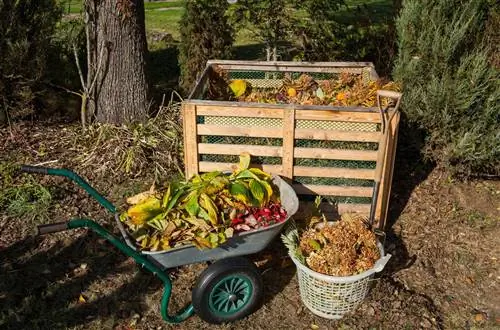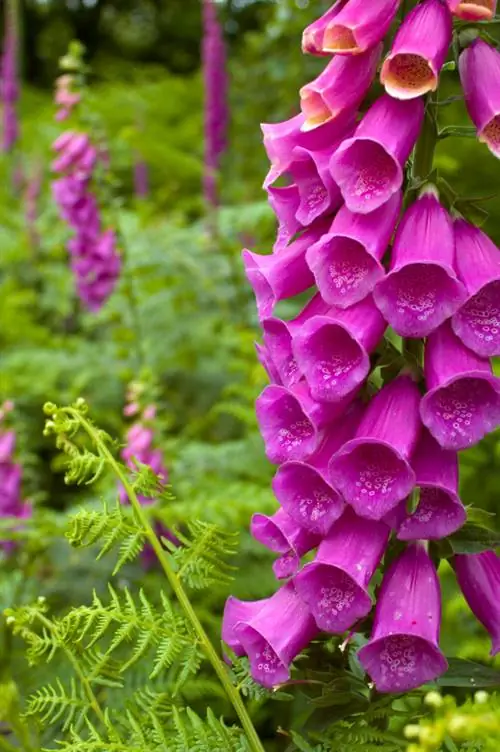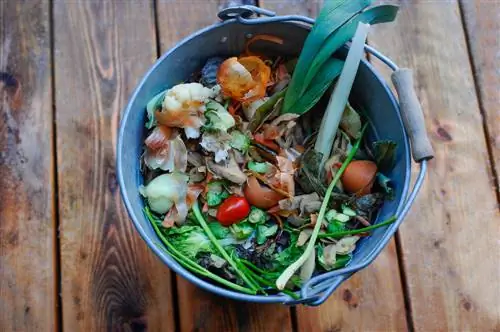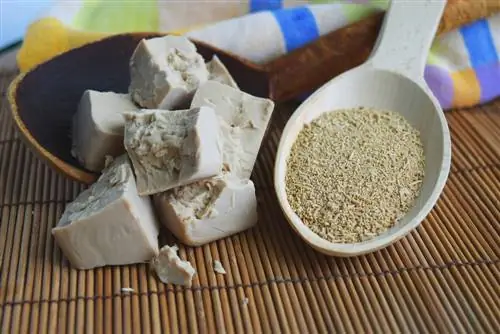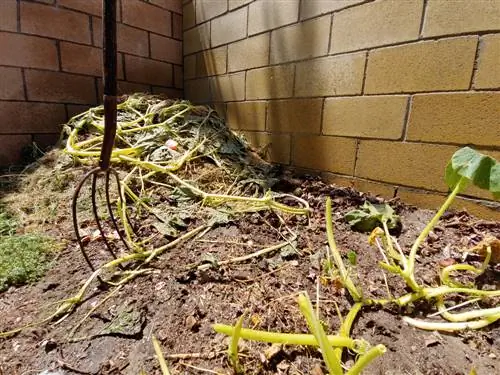- Author admin leonars@hobbygardeners.com.
- Public 2023-12-16 16:46.
- Last modified 2025-01-23 11:22.
Compost should be in every garden, because rotting organic waste turns it into valuable fertilizer. However, not all plants may be composted, as harmful substances survive the process and could be spread with the humus.
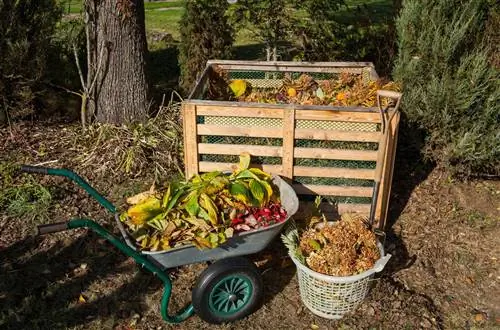
Can I compost foxglove without any problem?
Foxglove can becomposted safely,because the toxins contained in the plant are completely broken down when it rots. This means they can no longer be detected in the humus.
How do the toxins break down during composting?
On the one hand, this is due to themicrobial activity. On the other hand, thenatural aging of the rot is responsible for this:
- Compost is a living ecosystem in which a variety of microorganisms are active. Bacteria, fungi and worms contribute to the decomposition of the foxglove and convert the toxic components of the plant into harmless components.
- Some of the toxic substances are relatively unstable and degrade over time.
As a result, toxic foxglove substances are no longer detectable in the compost soil.
Tip
Extend the lifespan of foxglove plants
The foxglove is a biennial perennial that only forms a rosette of leaves in the first year and an impressive flower stalk in the second year. If you want the plant to continue blooming in the third and perhaps even fourth year, you should cut back the dead stems. This also prevents the foxglove from spreading and germinating in places where you don't want it.

